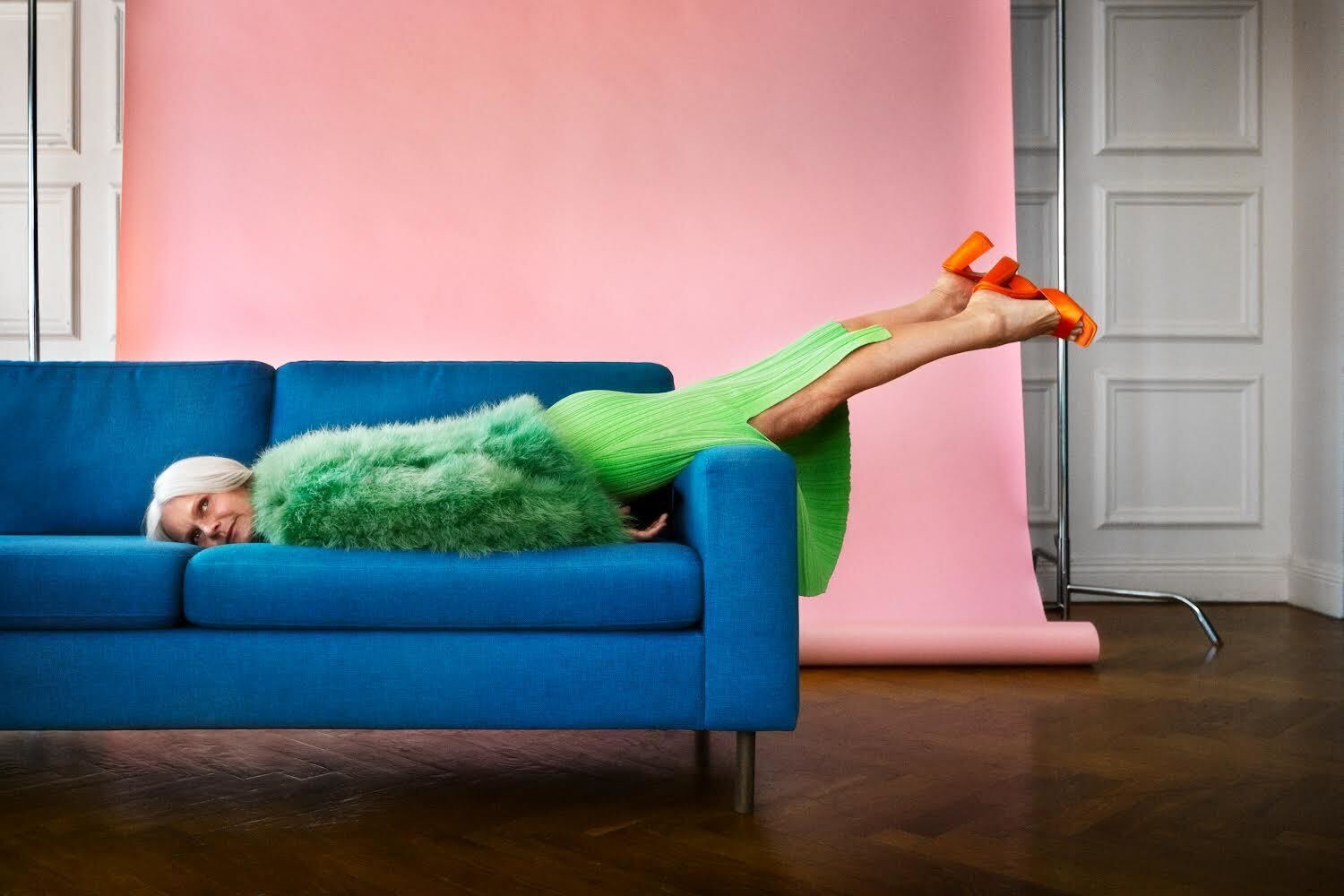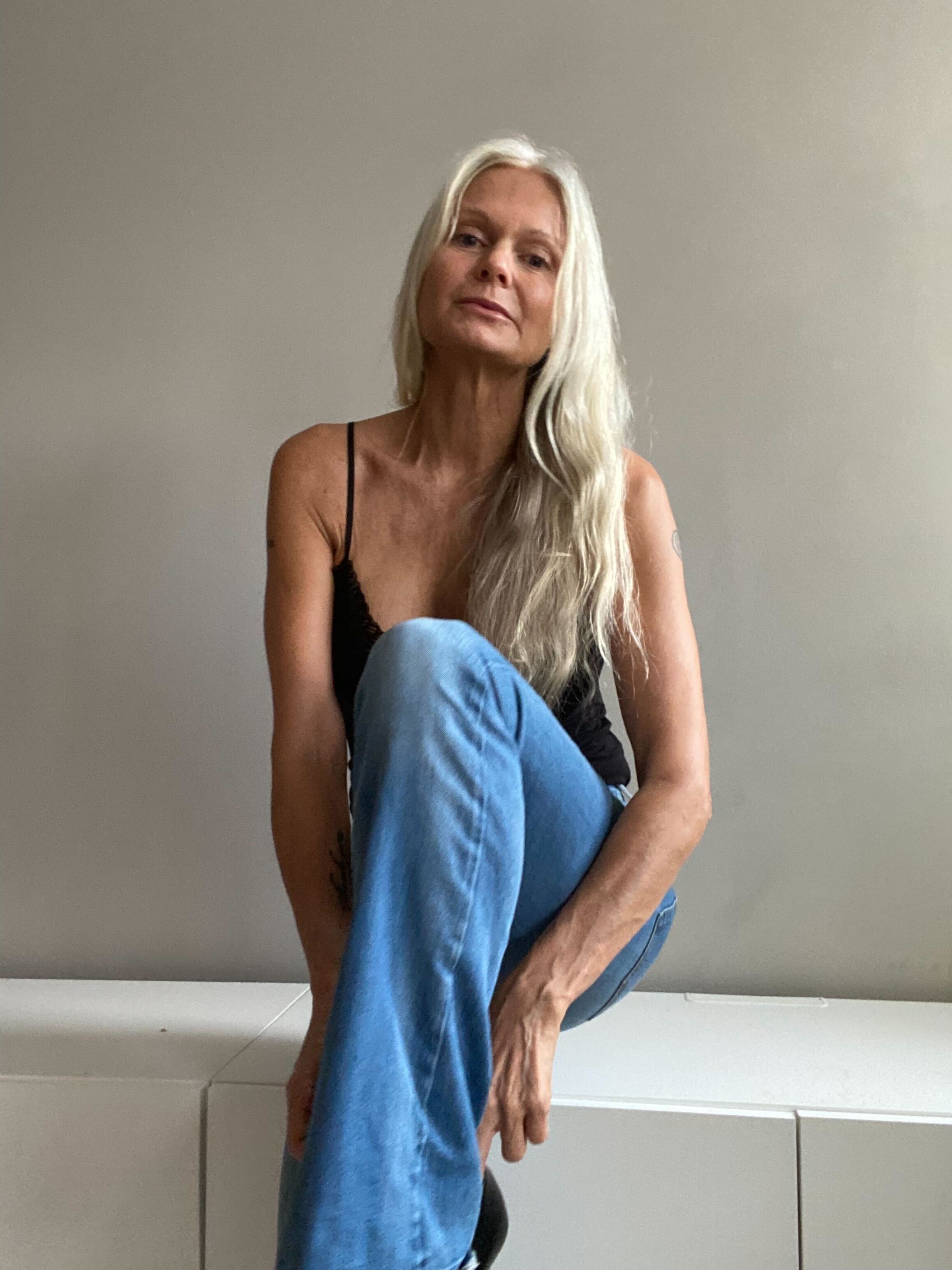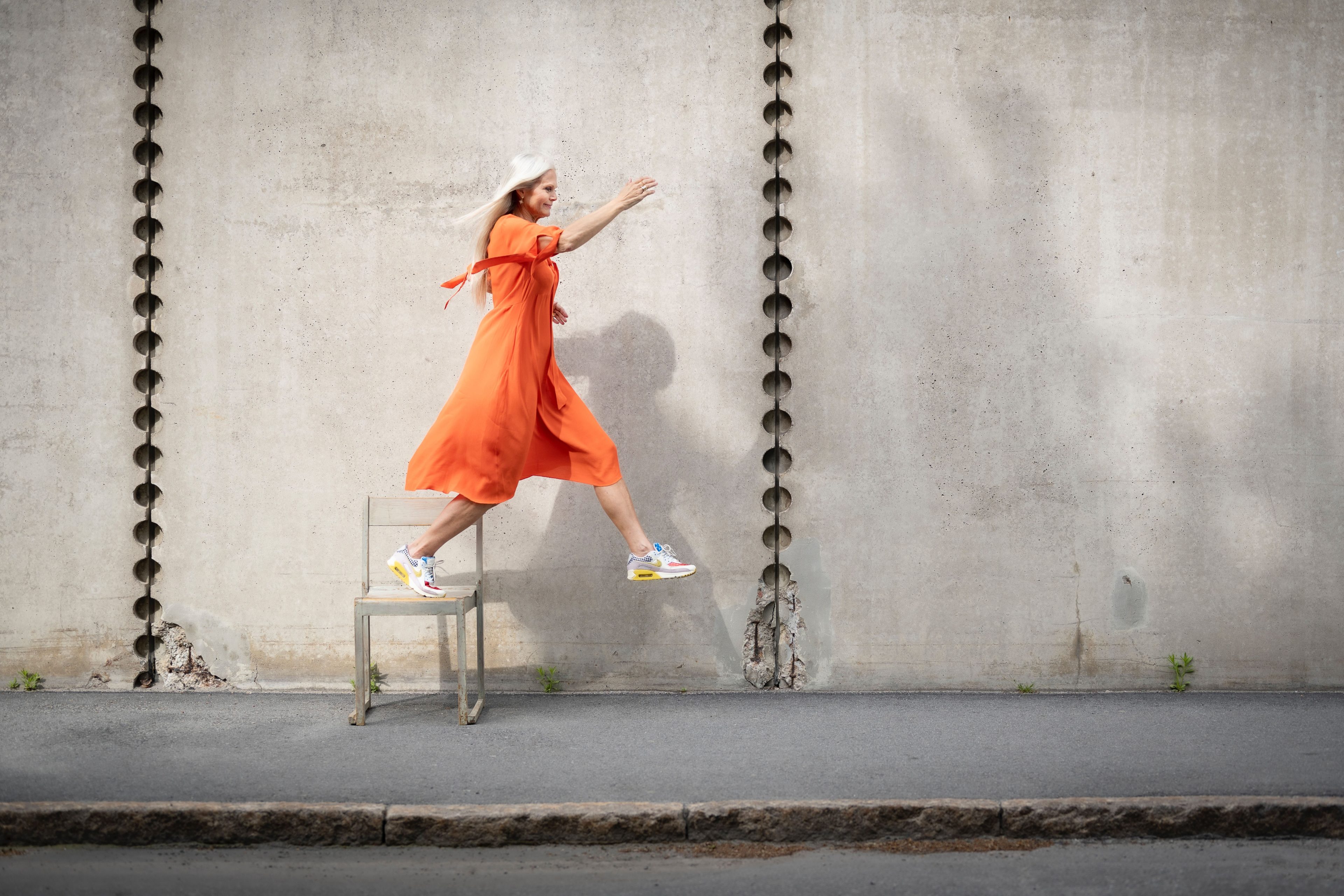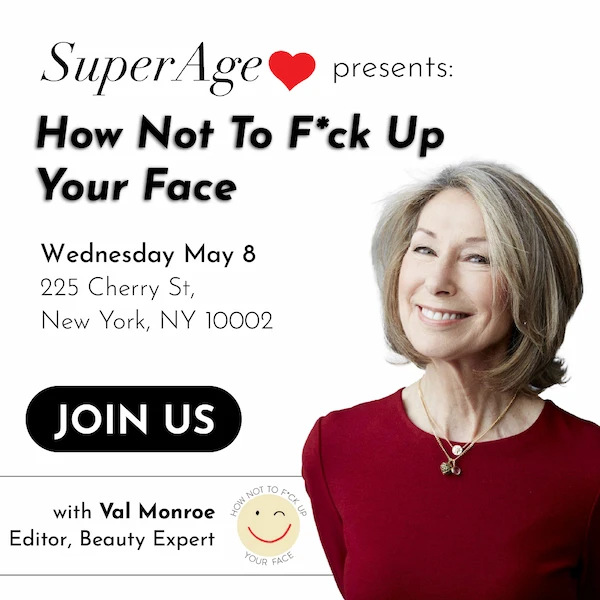Shama wants to live; not just exist, but to live as vital and engaged life as possible. She has struggled with depression at various points in her life, sometimes with frightening consequences. One of the consequences of the pandemic is a marked rise in mental health issues, not just in young people, but people of all ages. We wanted to hear from Shama about her experience with tragedy and recovery, with self-medication, prescribed medication, no medication, and get her first-person thoughts on the matter. She also is determined to make an impact in the world via her new modeling agency showcasing people our age. Because we all deserve to be noticed.
If you know someone who seems to be struggling with depression, or you are having some difficulties, we urge you to seek help. This is serious stuff, not the sort of thing to be taken lightly. We also strongly believe that if you are currently taking medications, do not make changes to them without talking to a medical professional. There can be very serious outcomes that can quickly spiral out of control.

How old are you?
I will be 55 June 30.
Where are you from and where are you based?
I’m from Sweden, born up north, but been living in Stockholm for 25 years.
Can you talk to us about your history with depression?
I think I’ve been depressed on and off from quite early years, perhaps 7 or 8. I write a lot about this in my book, the reasons behind, early childhood traumas and desperate tries to ease anxiety as a child with books and food. It then continued with sports, alcohol and men and when my dad passed when I was 18 I had severe alcohol problems. I made my first suicide attempt a year later at the age of 19 and then another one at the age of 26 when my husband-to-be died in a plane crash. My latest, and hopefully my last, attempt was 2015 after living in a very destructive relationship with an alcoholic. To cut a long story short, my underlying depressions made it impossible for me to handle a crisis.
What are your feelings about taking medication for depression?
I think medicine can be a life saver when in a difficult time, to help us overcome and survive. What I’ve learned the last years is that so many people are on them long term, not daring to get off them. I feel it’s equally important to support people to stop taking them, as it is to support people in great need of support to take them. It’s a two edged sword in a way and I feel we forget that they actually alter our mood. I can say that I feel less, especially of the sadness. But some sadness you want to feel, is essential to feel, as when someone dies or you lose something important. Sorrow and anger and to grieve over our losses is part of being human, and I think those feelings are the basis for our empathy, too. I’m afraid that we become a colder society the more people are on medication long term; we simply care less. So, in my world, we take them when we need them, but we don’t stay on them “just in case” and out of fear. This we need support with, to wean off the meds and trust in our capability to feel again.
“In my world, we take [meds] when we need them, but we don’t stay on them ‘just in case’ and out of fear”
What do you mean by: medication is like a life jacket?
My sister had twin boys and when they were only one and a half years old, she got another baby boy. There was a time when I came to her farm and the twins and the baby were all wearing helmets and life jackets walking or crawling around in the yard. I asked her why and she said, “Just in case they fall.” And they did! All the time! I often think of the boys when I think of medicine, that the meds give me an extra supportive padding around myself so I don’t get hurt so easily. If depression is a dark ocean of misery, the medicine works as a support that keeps me afloat until I can swim again.
What are your feelings about people stopping taking medication?
I think I answered this a little before, but I think it’s important not only for the individual but for the whole of society that we get off meds. I think they are too easily prescribed as a quick fix, where what people often need is the support of a human being. So if and when we do get off the medication, we should either be offered or seek support ourselves in a human being. When I went off the meds this spring I told my friends that this is what I’m doing; in fact, I told Instagram too, in case I would go down. This is one of the advice I give to depressed people: tell it as it is, don’t hide. The hiding is what kills us. I think if the prescription of medication is this high, there must be a plan on how to stop. The fear of feelings must be addressed so people can feel safe to get off the medication and start to feel again. It’s never the feelings that kills us, it’s what we do to not feel that does.
“It’s never the feelings that kills us, it’s what we do to not feel that does”
How was alcohol affecting you?
Alcohol was, in a way, also a life saver to me when I was young; it made me survive solitude and grief. The hangovers almost killed me, but thank God there was always another party, another bar, another night to start all over again. I stopped drinking cold turkey when I got pregnant when I was 20, and during 25 years my drinking was pretty ok. After my last (I say last, ok) suicide attempt 2015, I began to drink more, party more, and one day I realized I was back at the age of 20 and that I drank too much. So I stopped. I was completely sober for 5.5 years and this spring I’ve began to take a sip of red wine or champagne. I don’t think I’m an alcoholic but I have great respect for any substance that alters with my head. I enjoy sobriety and having my thinking straight, and I have no plan to change this. But I don’t believe in fear and I love freedom, so it’s inevitable that I would try to drink again and see if I was f**cked. ☺ In general, I feel that alcohol is really bad the way at least people in Sweden drink, becoming really drunk. It absolutely messes with your health big time.

How did the pandemic affect you?
Honestly, I enjoyed the pandemic. It seems strange but, to me, it was as if the whole world was depressed and I felt more equality and less lonely. I too became depressed early 2020 at the beginning of the pandemic because I lost my job, but I took that as a sign to write my book and I did. I managed to turn my depression into life joy, and I’ve been on that path since then. I also got to spend more time with my children and their grandmother, and I feel the pandemic made us come closer. I enjoyed the slow pace of the pandemic and felt that we were less segregated for a couple of years.
“I managed to turn my depression into life joy, and I’ve been on that path since then”
If one was depressed once, is it easier for it to happen again? How does one break the cycle of depression?
For every time you become depressed, it’s easier to be depressed again. If you try to commit suicide twice or more, you will die from suicide. This is what the statistics tells us. I think statistics is what we know up until now, and we can always change. That’s how remarkable we are; we can always start over and learn and do differently. I wish there was more research around recovery and support after depression, instead of the installed fear that we need to be on meds and go to therapy all our lives. I know only one way to break the negative cycle of depression and that is to do one good thing at a time. One good thing can be to go to the doctor and actually start taking meds, one good thing can be to reach out to a friend and tell it as it is, one good thing can be to go for a run, one good thing can be to cuddle a dog. It’s different for everyone but we all know the difference between the good thing and the bad thing for us. To have support in mapping out “the one good thing at a time path” would be amazing, so we don’t turn to drugs and alcohol and end up in a worse place tomorrow. Every decision matters, not only when we are depressed but always. It takes us right or left, up or down.
Do you have techniques for managing your feelings?
Nah, not really. I cry when I need to cry, I laugh when I am joyous, I try to let feelings be as they are and let them pass once I’m done with my breakdown or happiness rush. I always come up or down again. It’s different to feel than to be depressed. When I feel, I feel; when I feel the dark wind of depression coming my way, I take action and do what I feel is right at that time. I’ve become really good to navigate my depressive tendencies but my feelings I let be.
“I think that we simply need to feel more to increase our level of empathy”
You have said that the world needs all of us to be feeling now. Could you explain that?
In Sweden, 2 out of 10 adults are on anti-depressants, which means that as a whole, we feel less. The last years of the pandemic, of war, of financial worries, of loneliness and losses of loved ones is a lot to feel, too much to take in. That this, in combination with so many being on medicine, makes us less sensitive to each other’s pain and feelings. If we are not moved to tears of what we see, why would we move our hearts and arms and wallets? I think that a less feeling society is a colder place and we chose the path of fear instead of love, weapons and war instead of peace. I think that we simply need to feel more to increase our level of empathy. We medicate away our feelings because of fear, and we end up feeling less and accept more. It’s almost as if we’ve put ourselves in the backseat of the car. But this is me, my personal view based on reactions and relationships I have and that I have lost during the last two years. If we can’t be at peace in our family, our closest circle, how can we have peace in the world? The outside is just a manifestation of our inside world.

What is your advice to people who may feel they have a problem with depression?
Seek help, professional help. Buy my book and read it over and over again. Take the steps you need to get back on track and the most important one is to reach out and ask for help. Again and again. And do not settle with not getting support. Be difficult. There are so many levels in depression and at the deepest level you can act, I know this, so we never put ourselves there, ok? Always take action when you feel the FIRST signs of depression, then you call a friend or a sister or a parent or a help line. Don’t wait and go down more.
What would you say your life purpose is now?
I don’t know, dear! I am absolutely clueless of my life purpose except that I know that I shall live! Living is my life purpose, and what can be more important than that?
“Living is my life purpose, and what can be more important than that?”
You’ve said that you feel a revolution in the field of aging happening. Can you speak more about what you’re seeing and how you hope things change?
I feel that the reactions to me starting the 50+ modeling agency has been too much, too loud, too massive for there not being something bigger underneath. So many people are applying to join us, many of them with absolutely zero experience in modeling, just wanting to be a part in showcasing aging. It’s really hard to age naturally these days and I know there will be a period when we will need to fight to NOT do any invasive treatments or surgery and just let ourselves be. When I say it, it seems both ridiculous and troublesome at the same time — can we get off the fillers and the botox? I think this is a part of the revolution, to say NO to altering our faces and bodies, to say NO to being sold products marketed by teenagers, to say NO to being disrespected at work and in society. I just feel there’s a whole age group in the world that is fed up with not being ok as we are. And I feel the time has come when we no longer conform and adjust to fit the young ideal, but we take over as the ideal.
“I feel the time has come when we no longer conform and adjust to fit the young ideal, but we take over as the ideal”
What is it like to be a model over 50 years old?
Tough. And fun. And tough. I often struggle with low self confidence because of the age gaps at shoots and I long for a setting where I feel more equality. I don’t see myself as beautiful so to me it’s more of a learned thing, that I trust that I’m chosen if I get the job. To go from depressed, low- self-love and self-esteem kind of person to being a model or an influencer is a bit surreal. Some days I fit in, and some days I feel as an outsider. It’s hard to be a beginner at the age of 50+ and I know it means something that I do it; otherwise, I would not be here talking to you, right? ☺ I think I am in this job as I am in life: I have my good days and I have my bad days, my self doubt and my self love in a mix.
What is it like to own an agency specifically for models over 50?
This is so much fun! And so much work! My God! We have been working around the clock just to manage to answer all requests from models and the media and we also have a few bookings already. The best part is that I get to see so many beautiful people; it’s all about the people. And I see that so many with a right mindset are joining us that I feel positive we can make an impact. The modeling business has so many weird practices and standards, as not only allowing but encouraging child labor, telling people they are too short or old as if it’s totally natural. What other workplace would get away with that? It will be a challenge to keep values that are important to us and not give in to the demand from this industry. I want to break new ground in many ways with Golden Age Models, not only by gathering 50+ models.
“I want to break new ground in many ways with Golden Age Models”
How do you think the sentiment around aging is different between Scandinavia and the US?
Of this I know nothing. I’ve heard that Sweden is considered to be the most ageist country in the world, but I don’t know what it’s like in the States. I know that in many cultures, children look after their parents and take care of them. In Sweden, we have nothing of that. I also have a feeling that young people often rise above their parents and see the parents as victims instead of showing them respect. But once again, this is my perception.
What are your 3 life non-negotiables?
At first, I could not come up with one single thing!
I’ve been through so much so there’s nothing I hold on to like it’s mine forever or I can’t live without it. I’ve lost my parents, my husband, my kids at times and friends to cancer.
But when I think about it, my health routines are something I hold very high. What I eat, my exercise, my sleep is always top of mind for me so I stay on a high mental-health level.
Also, I don’t do bad relationships, because this ruins my mental health so fast. I used to be a big helper but now I prioritize to put me first, you second, especially if you are bad news.
Coffee in the morning! I’m a breakfast person, a morning person and I love everything about mornings!
I could go on and say, “Don’t touch my dogs and kids and my computer and phone, etc, etc” but no, I think I could actually survive without much as long as I have my mental health intact.
Much love and kindness,
Shama
Main image by: Mauro Lòpez
LEAVE A REPLY
The ideas expressed here are solely the opinions of the author and are not researched or verified by AGEIST LLC, or anyone associated with AGEIST LLC. This material should not be construed as medical advice or recommendation, it is for informational use only. We encourage all readers to discuss with your qualified practitioners the relevance of the application of any of these ideas to your life. The recommendations contained herein are not intended to diagnose, treat, cure or prevent any disease. You should always consult your physician or other qualified health provider before starting any new treatment or stopping any treatment that has been prescribed for you by your physician or other qualified health provider. Please call your doctor or 911 immediately if you think you may have a medical or psychiatric emergency.



Nice read!
Thank you❤️
Deep reflection and honnest words! Shama, you are couragious! Wish you joy and a smooth flow of life!
Dear Kate thank you so much for your kindness!❤️
Hi,
Where can I buy the book she wrote?
Hi dearest it’s only available in Swedish right now I need a publisher outside of sweden so sorry.❤️
Wonderful article and your honesty is refreshing and eye opening in this culture of hiding our feelings. Sadly right now it is nearly impossible to find a therapist as people are depressed and flocking to them. Therapists have waiting lists! I know this as a fact from people looking and my own therapist who cannot book any more patients. I also don’t feel the country is coming together as a community like we did after 9/11 when everyone was friendly and greeting each other in gratitude. There has been a seismic shift to retreat and be fearful. Your words are the most honest I have read in quite a while about depression, life, and where we go next in our collective lonliness. Thank you!
Thank you for taking the time to respond and I absolutely agree, the world right now is fearful much worse than before covid. We must join hands and hearts. Much love to you❤️
Hello, I think that you Shama are absolutely remarkable, you’re absolutely gorgeous and perfect and you have a absolutely gorgeous and perfect body, don’t let anyone tell you any different, Love Your Huge Fan, Jason
Hello, I think that you shama are remarkable and you’re absolutely gorgeous and perfect, and what a absolutely gorgeous and perfect body you have and don’t let anyone tell you any different. Love From Your Fan, Jason.